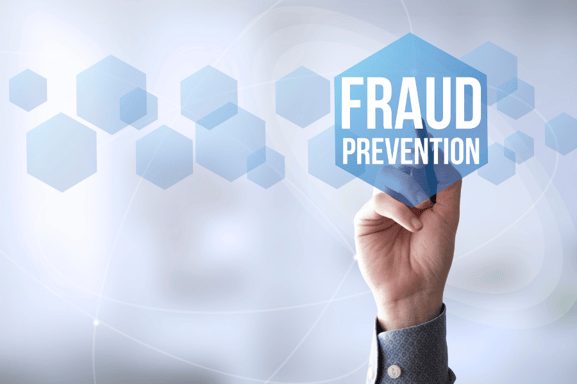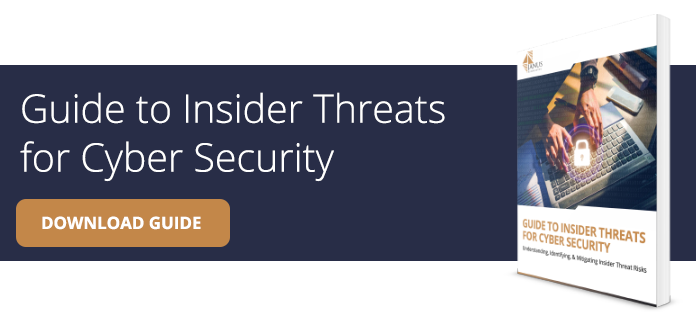Avoiding Online (and Offline) Fraud with Due Diligence Part II
Ensuring that you keep your personal identifiable information (PII) safe and protected should be your number one priority. With these tips below, JANUS provides insight on how you can prevent fraud from occurring.
Cybersecurity due diligence is essential in today’s digitalized world. In the first part of our blog, we discussed the importance of taking a closer look at purchases and agreements your organization buys into. To read Part I of this series, click here.
Scammers often pretend to be from well-known organizations, such as the IRS, or the utility company. They will tell you that if you don’t send money, you will be arrested, or your services will immediately be disconnected. Don’t believe them and always be suspicious of any calls from a supposed government agency or other businesses demanding immediate payment.
A common scam frequently referred to as the Grandparents Scam, is when a caller informs you that a family member is under arrest and needs money to be sent immediately. They will try to convince you that the person is actually there, and you may hear a voice in the background or someone who speaks directly to you.
For example, sometimes scammers will call posing as ‘local authorities’ from out of state or a different country and that your grandchild is being detained. Urgently, they may ask for personal information, bank information, access to your computer or phone, money, or even a direct transfer. While the safety of your grandchildren is important, it’s more important to protect yourself and your family from cyber criminals and scam artists; divulging sensitive data can have damaging repercussions.
What do you do if you were scammed? Learn more about what to do if you paid someone you think is a scammer or gave them personal information. Be cyber aware and stay diligent on best practices for online security with the following insights.

Cybersecurity Due Diligence Tips:
- Change online passwords regularly and make them secure. Use strong passwords that contain at least 8 characters including upper & lower case, numbers, and special characters.
- Never use words that are easy to guess such as a child, pet, or spouse's name, or things like "1234", or "Password". Here is a link to the most commonly misused passwords.
- Posting personal information on social media is like giving a thief the keys to your front door. Never post your date of birth, mailing address, phone or social security number, or personal email on any online site.
- Both Windows and MAC have some form of antivirus built-in. Make sure it is turned on, and in the case of Windows, confirm that all of the additional security features such as the built-in firewall are active.
- Consider adding a layer of advanced malware detection to your machines. Malwarebytes is a well-regarded choice for both personal and business users. Sophos is another good option.
- Applying software and firmware patches are often overlooked and can lead to catastrophic results. Confirm that these options are turned on in the automatic mode.
- Never send sensitive data such as financial or health information by email. If you must, a password protects the information and send it by email, followed by sending the password via text message to a trusted number.
- Don’t download software programs or apps from an unknown source. Downloading apps or software programs from an unknown source is a sure-fire way to download malware. Only download from a trusted location such as the Google Play Store or the App Store from Apple.

When making a purchase online, take the time and look at the URL (internet address). Confirm that it starts with HTTPS, https://www.janusassociates.com. If the address lacks HTTPS in the beginning, the site is not secure and that increases the risk that fraudsters will steal your transaction information.
Using Public (unsecured) wifi hotspots such as those found in a coffee shop is a recipe for disaster. Cybercriminals are known to frequent free hotspots and can easily monitor your activities and steal sensitive login information should you log on to sites such as financial institutions.
The internet and eCommerce are wonderful things in normal times, and a necessity in this day and age. It’s important to remember that there is no such thing as being 100% secure, but following these simple tips and best practices will help to minimize the risk of a cybercriminal taking advantage of you, your information, and your financial wellbeing.
Contact JANUS Associates
For the past 33+ years, we have helped hundreds of government agencies, commercial entities, educational institutions, and not-for-profit organizations protect their infrastructures, data, clients, and employees. Our decade-long experience has allowed us to achieve deep expertise in every sector and specialty that exists, including yours. We are friendly, nimble, and flexible and always focus on what's best for your business.
Contact Chris Kniffin, Corporate Director, to find out how a team of affordable professionals can help you secure your organization and meet your regulatory compliance goals.
Topics
- Business Resilience (20)
- Data Breach Protection (14)
- Incident Response (12)
- Employee Security Awareness Training (11)
- Managing Cyber Risks (8)
- Cybersecurity Education (6)
- Ransomware (6)
- AI and Cybersecurity (5)
- CIO & CISO Services (5)
- Cyber Threat Report (5)
- Penetration Testing (5)
- Business Continuity & Disaster Recovery (BCDR) (4)
- Cyber Insurance (4)
- Information Security (InfoSec) (4)
- Vulnerability Assessments (4)
- Case Study (3)
- Enterprise Risk & Compliance (3)
- Attack Surface Discovery (ASD) (2)
- Cybersecurity Maturity Model Certification (CMMC) (2)
- Small Business (1)

